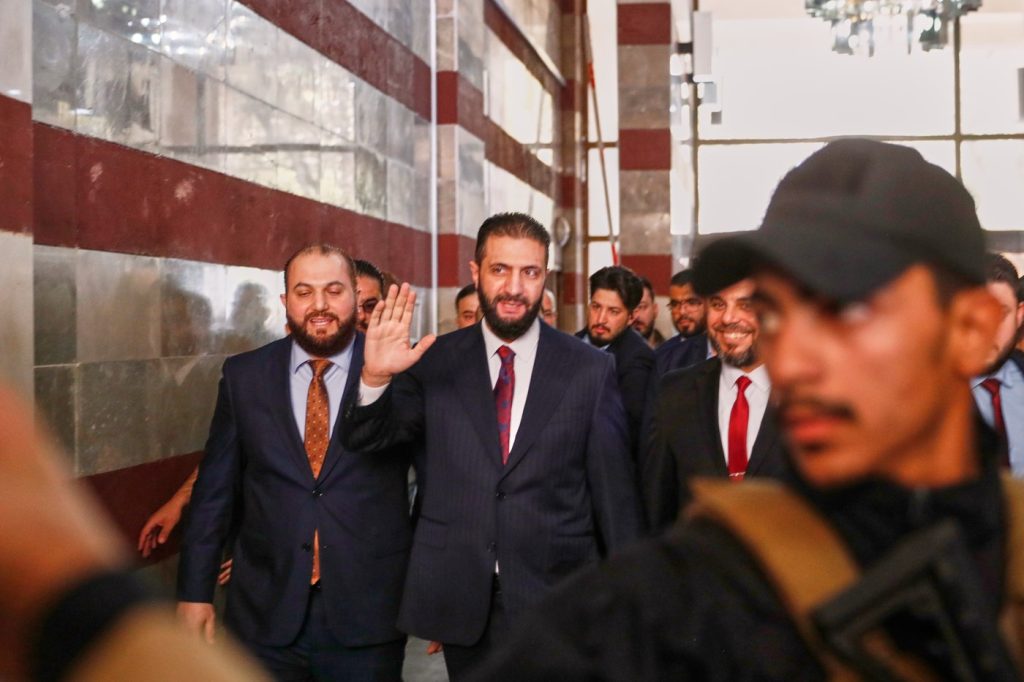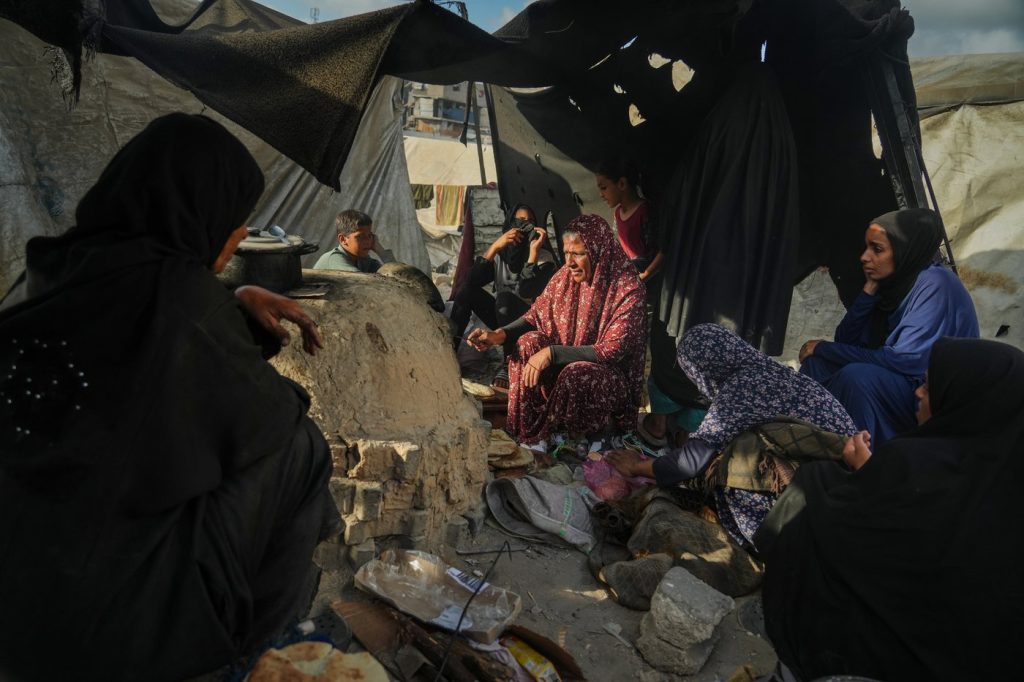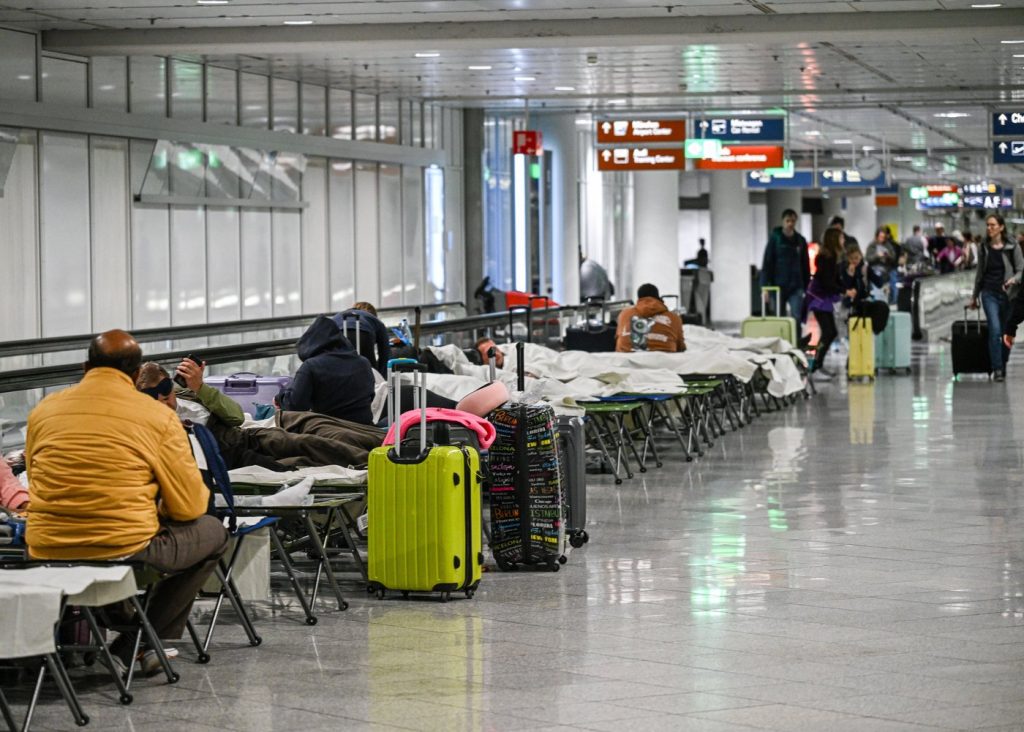DAMASCUS, Syria (AP) – On Sunday, Syria conducted its first parliamentary elections, nearly a year after a rebel-led offensive resulted in the ousting of longtime autocratic leader Bashar Assad. The newly formed People’s Assembly will be responsible for establishing a new electoral law and constitution as the nation transitions from Assad's reign following over a decade of civil war.
Security forces were present at polling stations nationwide, ensuring order during the voting process. Members of the electoral college were allowed to enter polling booths to cast their votes, filling out ballots with lists of candidates' names, which were then sealed in boxes. The counting of the ballots took place publicly in front of candidates, journalists, and observers from the Syrian Bar Association.
Notably, there was no direct popular vote in this election. Two-thirds of the 210 seats in the assembly will be filled through province-based electoral colleges, with representation determined by population. The interim President, Ahmed al-Sharaa, will appoint the remaining one-third of the assembly members. The assembly will serve a term of 30 months while preparing for future elections.
While 7,000 electoral college members across 60 districts were theoretically eligible to vote for 140 seats, elections were indefinitely postponed in Sweida Province and areas controlled by the Kurdish-led Syrian Democratic Forces due to ongoing tensions with local authorities.
In a speech at the National Library Center in Damascus on election day, President al-Sharaa expressed the need for prompt legislative action to advance the country's rebuilding efforts: "There are many pending laws that need to be voted on so that we move forward with the process of building and prosperity." He emphasized that "building Syria is a collective mission, and all Syrians must contribute to it."
Many critics have stated that these elections do not meet the standards of full democracy. The electoral college system has the potential to favor individuals with existing connections, thereby consolidating power within the interim government. Initial results indicated that few women and minority candidates were able to secure seats, raising concerns about equitable representation. However, others viewed the elections as a step toward progress.
In Damascus, 490 candidates were vying for 10 seats, with approximately 500 voters from the electoral college present. One voter, Dr. Lina Daaboul, initially hesitated to join the electoral college due to concerns about responsibility and the negative legacy of past assemblies. She ultimately accepted her role, citing it as a "national duty."
On election day, she expressed her excitement: "This is the first time I’ve ever voted in my life. I’m happy, and I don’t mind standing in line for a long time.”
Many participants noted a sense of increased freedom compared to elections under Assad. The interim authorities argued that a direct popular vote is currently unattainable due to widespread displacement during the civil war and the loss of pertinent documentation. Lara Eezouki, a member of the national elections committee, remarked that the newly formed assembly represents all sects and groups and stated, "for the first time in Syria's history, the ballot box truly rules when the results are not prearranged."
Rim Yajizi, a lawyer and electoral body member in Damascus, compared current elections to those under Assad's rule, noting, "It’s enough to mention the freedom factor, the electoral statements, and the debates we watched and participated in. We had never seen anything like it before." In Aleppo, 220 candidates were competing for 14 seats, with around 700 voters in the electoral college.
One voter, Ibrahim Halabi, a former soldier who defected from Assad's army in 2012, declared, "This is the first time in our lives we’ve participated in a democratic electoral process without outside pressure."
In Latakia, a former Assad stronghold with a substantial Alawite community, three Sunni candidates emerged victorious. Rola Daya, one of the newly elected legislators, highlighted ongoing internal tensions: "Of course, internal tensions remain; it will take time to resolve. Transitional justice is needed so we can move toward civil peace." Having played a logistical role in the Syrian uprising, she noted the increased weight of responsibility she feels after her election, emphasizing the necessity of drafting legislation that serves the needs of society and the people.












